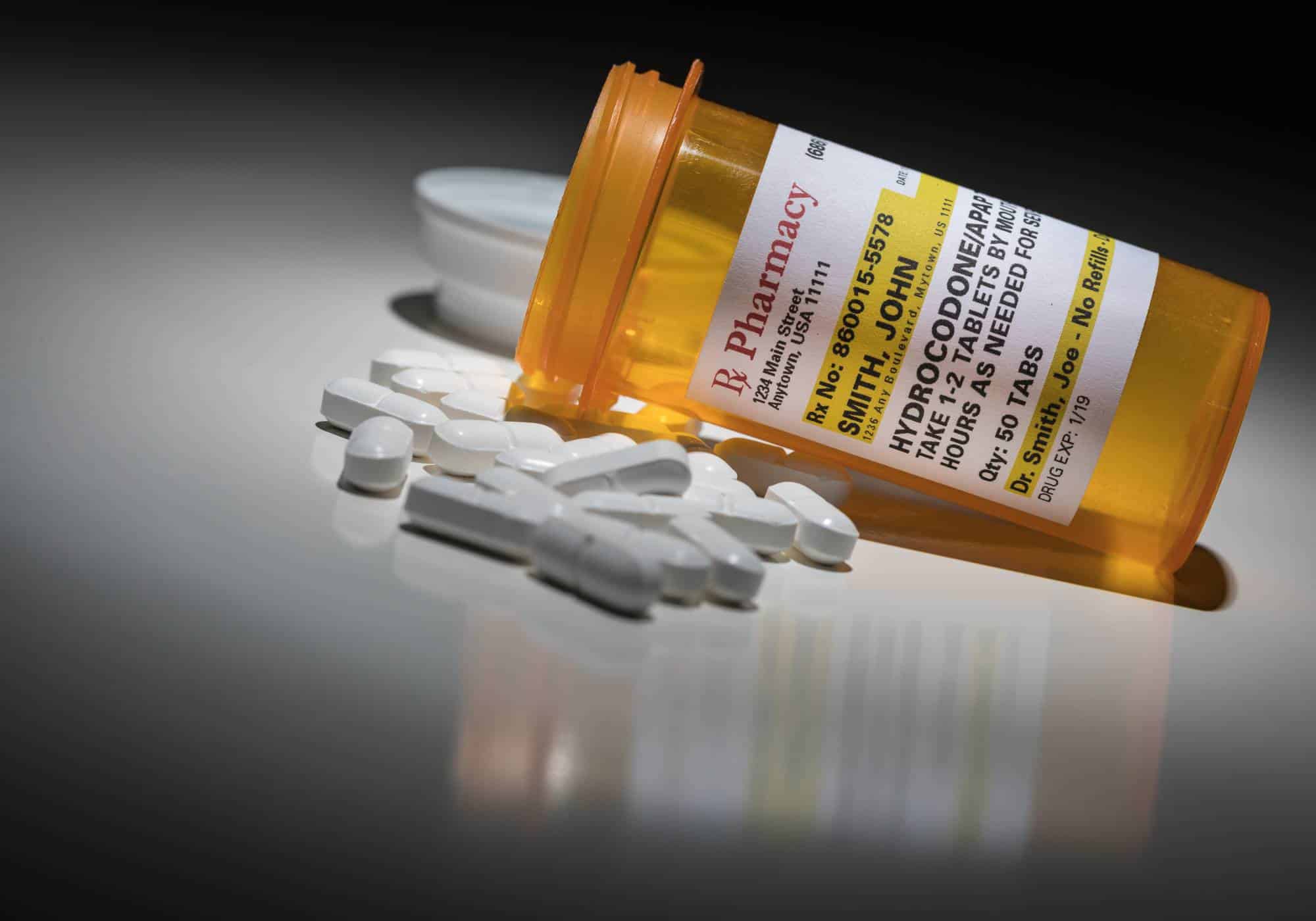Oxycodone-based opioids, notably prevalent in prescription medication misuse, are a significant concern in today’s healthcare landscape. While media focus often falls on well-known drugs like OxyContin and fentanyl, the abuse of Percocet is arguably more widespread. Percocet, a synthetic opioid, is formulated by combining oxycodone with acetaminophen. Its primary use is to manage acute, moderate to severe pain that is temporary, rather than for long-term, chronic conditions.
According to the Centers for Disease Control and Prevention (CDC), around 44 individuals in the United States lose their lives daily due to an overdose of prescription opioid drugs. The rise in Percocet misuse underscores the need for specialized treatment centers. These facilities are dedicated to assisting individuals who exhibit signs of Percocet abuse. Through a combination of medical and therapeutic interventions, Percocet addiction treatment centers aim to address both the physical and psychological aspects of addiction, offering a pathway to recovery and a chance at a healthier, substance-free life.
What is Percocet?
Percocet, a powerful prescription painkiller, combines oxycodone and acetaminophen. Oxycodone is known for its effectiveness in reducing moderate to severe pain, while acetaminophen, commonly available over the counter, acts as a mild pain reliever and fever reducer. This medication is often prescribed for those dealing with significant physical pain.
When used correctly, as prescribed by a healthcare professional, Percocet can be beneficial with minimal risk. However, its pleasurable effects have led to misuse by some individuals, either as a form of self-medication or for recreational purposes. Misuse of Percocet carries risks: oxycodone can lead to cardiovascular issues, and acetaminophen may cause liver damage. Additionally, the oxycodone component has the potential to be addictive, making responsible use and medical supervision crucial.
Other names for Percocet:
- PERKS
- ROXI
- PERCODOMS
- M-30S
- PAULAS
- KICKERS
- BLUEBERRIES
- RIMS
What is Percocet Addiction
Percocet, an opioid painkiller, works by altering the brain’s chemical pathways that process pain sensations. It also slows down several functions of the central nervous system, including respiration rates, blood pressure, and heart rate. The drug interferes with neurotransmitters like dopamine, which are responsible for feelings of pleasure. When abused, Percocet can flood the brain with dopamine, leading to a euphoric high.
Abusers of Percocet might crush and snort the tablets, smoke them, or dissolve and inject the powder. These methods deliver the drug directly into the bloodstream, producing an intense high and significantly increasing the risk of a life-threatening overdose.
According to the journal Physiological Reviews by the American Physiological Society, opioid abuse can alter the brain’s positive reinforcement system. This change can lead to emotional, physical, and behavioral shifts, transforming recreational use into compulsive behavior and potentially leading to addiction.
Signs of Percocet abuse can resemble alcohol intoxication, including slurred speech, poor motor coordination, memory lapses, and difficulty concentrating or making decisions. Users may exhibit risky behaviors, lowered inhibitions, and impaired impulse control. As the drug’s effects wear off, symptoms like irritability, dizziness, headaches, chills, increased blood pressure, yawning, dilated pupils, runny nose, and tearing are common. Other symptoms include sleep disturbances, irregular heart rate, muscle aches, depression, and anxiety.
Dependence occurs when the body and brain become accustomed to the drug’s presence and no longer function normally without it. This dependence is a result of changes in brain structure and function due to regular and repeated drug abuse. Withdrawal symptoms and drug dependence are key indicators of addiction, often accompanied by an increased tolerance to the drug’s effects.
Is Percocet Addictive?
Percocet, classified as a Schedule II controlled substance, carries a high risk of addiction. Its addictive potential is partly due to the oxycodone it contains, which can produce euphoric effects similar to heroin, a dangerous and illegal opioid.
While Percocet is an effective painkiller for short-term use, tolerance to it can develop rapidly. This means that over time, the drug’s effects lessen, leading individuals to increase their dosage or frequency of use. Such patterns of misuse and prolonged consumption can quickly lead to physical dependence and, eventually, addiction, known medically as opioid use disorder.
The widespread prescription of opioid painkillers for chronic pain in the 1990s marked the beginning of a cycle that led millions of Americans into prescription medication addiction.
Recognizing Percocet addiction is crucial. Some common indicators of Percocet addiction include:
- Creating fake prescriptions for Percocet.
- Doctor shopping to acquire additional Percocet.
- Purchasing Percocet through illegal channels.
- Resorting to illicit drugs like heroin.
- Stealing to finance a Percocet habit.
Understanding these signs can help in identifying and addressing Percocet addiction early, paving the way for effective Percocet addiction treatment and recovery.

Percocet Addiction Symptoms
Identifying signs of Percocet addiction can be straightforward. You or someone close to you might start withdrawing from social circles, experience strained relationships, or suddenly be part of a new group of friends. There’s often a noticeable shift in priorities, with a focus on situations where Percocet is available, sometimes at the expense of work or other important commitments. An obsession with obtaining and using Percocet can become apparent.
The Diagnostic and Statistical Manual of Mental Disorders, Fifth Edition, Text Revision (DSM-5-TR) outlines the criteria for diagnosing opioid use disorder, including Percocet addiction. The severity is categorized as mild (2-3 symptoms), moderate (4-5 symptoms), or severe (6 or more symptoms).
Key symptoms of Percocet addiction include:
- Using more Percocet than intended or for a longer duration.
- Unsuccessful efforts to cut down or control use.
- Spending excessive time obtaining, using, or recovering from Percocet.
- Strong cravings for Percocet.
- Failing to fulfill major role obligations at work, school, or home.
- Continued use despite having persistent or recurrent social or interpersonal problems.
- Giving up or reducing important social, occupational, or recreational activities.
- Recurrent use in physically hazardous situations.
- Persistent use despite acknowledgment of physical or psychological problems caused or exacerbated by Percocet.
- Developing tolerance (needing more of the drug to achieve the desired effect).
- Experiencing withdrawal symptoms when not using Percocet.
- Withdrawal symptoms when not using Percocet
- Weight loss
- Slurred speech
- Slowed heart rate
- Sleep problems
- Shallow breathing
- Problems with balance
- Fatigue
- Exhaustion
- Constipation
- Poor decision-making
- Poor concentration
- Memory problems
- Lack of focus
- Mood swings
- Anger
- Agitation
- Aggression
Causes and Risk Factors for Percocet Addiction
Percocet addiction can be influenced by a variety of factors, ranging from genetic predispositions to environmental circumstances.
Genetic Factors: According to the American Psychological Association (APA), personality traits such as impulsiveness and a tendency to seek new experiences can heighten the risk of developing opioid use disorder. Additionally, having a family history of chemical dependency, especially among close relatives like parents or siblings, can significantly increase the likelihood of addiction.
Environmental Influences: The environment plays a crucial role in the risk of Percocet abuse and addiction. Easy access to this medication, whether through personal prescriptions or by using someone else’s medication, escalates the risk. Furthermore, lacking adequate coping mechanisms and support after experiencing trauma, exposure to violence or crime, or a history of previous substance abuse also increases the probability of abusing Percocet.
Key Risk Factors:
- Impulsive personality traits.
- Access to Percocet, either through prescription or other means.
- Gender, with women being more susceptible to Percocet abuse.
- A family history of mental health issues.
- A novelty-seeking personality.
- A family background of substance abuse and addiction.
- Previous experiences with substance abuse and/or mental health disorders.
Recognizing these factors is essential in understanding the complexities of Percocet addiction and can guide more effective prevention and treatment strategies. If you or a loved on are struggling with Percocet addiction, contact us today to start your Percocet addiction treatment in Atlanta, GA today.
Effects of Percocet Addiction
Without proper treatment for Percocet abuse or addiction, an individual may face a range of serious and harmful effects, including:
- Suicide Attempts: The risk of attempting suicide can increase significantly.
- Sexual Dysfunction: Issues with sexual health and functioning may arise.
- Mental Health Challenges: Existing mental health conditions can worsen, and new ones may develop.
- Social Isolation: Individuals may find themselves increasingly isolated from others.
- Homelessness: The risk of losing one’s home and becoming homeless can escalate.
- Eye Problems: Addiction can lead to various eye health issues.
- Heart and Lung Damage: The physical health of vital organs like the heart and lungs can be compromised.
- Suicidal Ideation: Thoughts of suicide may become more frequent or intense.
- Relationship Strain: Personal relationships can become strained or completely break down.
- Job Loss and Unemployment: Addiction can lead to losing one’s job and difficulty in maintaining steady employment.
- Injuries: There’s an increased risk of injuries due to impairments related to Percocet use.
- Family Discord: Tensions and conflicts within the family unit can intensify.
- Financial Ruin: Managing finances can become challenging, leading to severe financial problems.
- Legal Issues: The risk of arrest, incarceration, and other legal complications can increase.
Addressing Percocet addiction promptly and effectively is crucial to avoid these severe consequences and to pave the way for recovery and a healthier life.

Percocet Withdrawal Symptoms
Withdrawal from Percocet, which contains the opioid oxycodone, can present severe and potentially dangerous symptoms, especially in cases of moderate to severe addiction or dependence. Due to these risks, withdrawal should always be managed under the care of a professional medical detox team, not at home.
Common symptoms experienced during Percocet withdrawal include:
- Flu-like Symptoms: Fever, chills, excessive sweating, and a runny nose are typical.
- Muscle Aches and Pains: Many patients report widespread muscle discomfort.
- Restlessness and Agitation: Psychological symptoms like restlessness, anxiety, and agitation are frequent.
- Insomnia: Difficulty sleeping is common, making restful nights challenging.
- Gastrointestinal Issues: Nausea, vomiting, diarrhea, and abdominal cramps often occur.
- Dilated Pupils: Enlarged pupils are a physical sign of opioid withdrawal.
- Yawning and Teary Eyes: Frequent yawning and watery eyes are also common.
- Mood Changes: Mood swings, irritability, and other mood disturbances, including depression or intense drug cravings, are typical.
- Cardiovascular Symptoms: Elevated blood pressure and a rapid heart rate can be concerning in severe withdrawal cases.
Proper medical supervision during Percocet withdrawal is crucial to safely manage these symptoms and support the individual’s journey to recovery.
How Long Do Percocets Stay in Your System?
Percocet, unlike its extended-release counterpart OxyContin, exits the bloodstream relatively quickly. Each dose is designed to provide relief for around six hours, with a half-life of approximately three and a half hours. The “half-life” of a medication indicates the time it takes for half of the administered dose to leave the bloodstream. However, it may take nearly a full day for the drug to be completely eliminated from the body.
Even after this elimination, Percocet can still be detected in drug tests because its metabolites linger in the liver for a longer duration than the drug remains in the bloodstream.
For individuals undergoing drug tests for employment or legal purposes, Percocet can be detectable through urinalysis for up to two days following the last dose. In fact, Percocet can be identified in the blood as quickly as 15 minutes after ingestion and may still be traceable up to 24 hours later. Moreover, it can be detected in hair follicles for an extended period, up to 90 days.
Percocet Overdose Risks
Prescription opioid overdose stands as a significant concern in the United States, contributing to injury-related morbidity and mortality. When Percocet is misused, it poses a grave risk, including the potential for a fatal overdose.
Beyond the threat of opioid overdose, there’s another danger related to Percocet misuse: the risk of ingesting a harmful amount of acetaminophen. Consuming excessive quantities of Percocet can result in acetaminophen toxicity. Symptoms of this toxicity can be subtle and non-specific, encompassing feelings of discomfort, abdominal pain, nausea, and vomiting. Although it can lead to severe liver failure, acetaminophen toxicity claims around 500 lives annually in the United States.
Furthermore, the effects of sedation caused by Percocet can become more pronounced in individuals who consume alcohol regularly or misuse Percocet in combination with alcohol. This combination can intensify the risks associated with both acetaminophen toxicity and the sedative effects of Percocet.

Percocet Addiction Treatment
Treating Percocet addiction is much like addressing other opioid dependencies. The process typically begins with detoxification, aimed at flushing any remaining traces of the drug from the individual’s system. This initial phase can be quite uncomfortable and, in some cases, even perilous due to the withdrawal symptoms associated with Percocet.
Following detox, individuals in recovery have two primary options: inpatient rehabilitation centers or outpatient facilities. In the former, they can receive continuous medical supervision, while the latter offers a more flexible approach, allowing them to receive medication and acquire coping skills in a supportive environment.
At Hope Harbor Wellness, we offer a warm and inviting outpatient setting for those seeking recovery from Percocet addiction. Your journey to reclaiming your life begins here. Our program includes individual therapy, group therapy, and access to a 12-step recovery program tailored to Percocet abuse. Additionally, we focus on fostering healthy habits and reintroducing individuals to enjoyable sober activities like surfing, hiking, or simply unwinding.
By combining evidence-based treatment with holistic therapies, we empower you to make positive behavioral changes and break free from the grip of opioids.
Recognizing the challenges of opioid use disorder relapse, our dedicated treatment team equips you with a robust aftercare plan. This plan encompasses relapse prevention strategies, effective coping techniques, and the option for ongoing outpatient therapy if needed. Your journey to recovery is our top priority. Call us today at 678-929-6304 to begin your Percocet addiction treatment in Atlanta, GA.
Percocet Addiction Treatment Frequently Asked Questions
Are Percocets Addictive?
Yes, Percocets can be addictive. They belong to the opioid family of medications, and opioids have a potential for addiction when not used as prescribed. It’s crucial to follow the prescribed dosage and duration to minimize this risk.
How Addictive is Percocet?
Percocet can be highly addictive due to its opioid content, particularly if taken in ways or doses not recommended by a healthcare professional. The potential for addiction underscores the importance of responsible use and close monitoring by a medical provider.
How Long Does it Take to Get Addicted to Percocet?
The time it takes to become addicted to Percocet can vary from person to person. It may happen relatively quickly, especially if the drug is misused, but addiction onset can depend on individual factors such as genetics, dosage, and frequency of use. Some individuals may develop dependence within weeks, while others may take longer.
Why Do People Abuse Percocet?
People may abuse Percocet for various reasons, including seeking pain relief, experiencing euphoria, or using it recreationally. Some individuals may also misuse it to cope with emotional or psychological distress. Understanding these motivations is crucial in addressing the root causes of abuse and providing appropriate treatment.
How to Tell if Someone is Abusing Percocet?
Signs of Percocet abuse may include changes in behavior, increased secrecy, declining physical health, neglecting responsibilities, and a strong desire for the drug. If you suspect someone is abusing Percocet, it’s important to seek help and support for them. Open communication and intervention can be key in assisting them on the path to recovery.
Why Do People Abuse Percocet?
Yes, it is possible to become addicted to Percocet, especially if used improperly or for an extended period. Addiction risk exists due to its opioid nature. Even when prescribed for legitimate medical purposes, individuals should be closely monitored by their healthcare providers to prevent and address any signs of addiction.
Why is Percocet Addictive?
Percocet is addictive because it contains oxycodone, an opioid that binds to receptors in the brain, creating pleasurable sensations and a potential for dependence. The brain can develop a tolerance, leading to a need for higher doses, which can increase the risk of addiction. This biological mechanism is one of the reasons why Percocet is addictive and requires careful management when prescribed.









